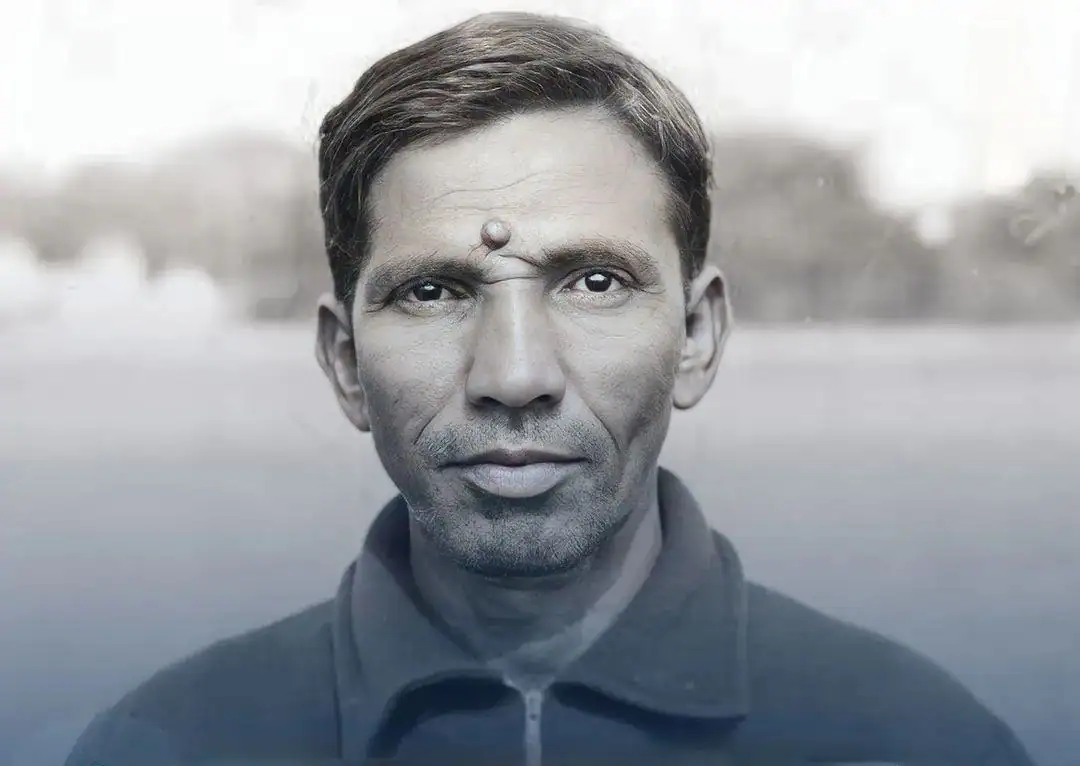It is often said that “great football coaches have the vision to see, the faith to believe, the courage to do”.
This phrase can be used to describe Sayed Abdul Rahim who is regarded as the pioneer of Indian football.
A professional educator and a powerful inspiration, his time is hailed as the “Golden Age of football in India.”
1. Personal information
| Full name | Sayed Abdul Rahim |
| Place of birth | Hyderabad, Telangana |
| Date of birth | 17 august 1909 |
| Date of death | 11 June 1963 |
| Place of death | Hyderabad |
2. Playing career
Rahim was born on 17 August 1909 in Hyderabad, in his early days he used to work as a school teacher. after taking football seriously Rahim represented the football team of Osmania University. He was also part of the team “Eleven Hunters” which had current and passed-out students in college.
After his journey as a teacher, Rahim returned to college to complete his degree in arts. after that, he served as a teacher at Urdu Sharif School, Kachiguda Middle School, Darul-ul-uloom High School and Chederghat High School.
Then, Rahim earned a diploma and took charge of sports activities in his final two schools where he served as a teacher.
Then, Rahim earned a dipim and took charge.
Rahim also played professional football for the Qamar Club. Plus, he also represented the Dutch amateur club and HSV Hoek in the Netherlands.
3. Football administration
During Rahim’s domestic career, he along with Syed Mohammad Hadi became associated with football in Hyderabad. Moreover, Rahim was one of the members who founded the Hyderabad Football Association in 1939.
In 1943 Rahim was appointed as the secretary while Ghulam Mohammad was appointed as the president of the association. After the Hyderabad Football Association was merged with Andhra Pradesh Football Association.
Rahim played a pivotal role in the development of football in the 1950s. He later went on to find players like Tulsidas Balram who later went on to represent the country on the international stage.
4. Managerial career
A) Hyderabad city police
It was the year 1950 when Rahim joined Hyderabad city police as a coach. He managed the team from 1950 till his death. The team won five consecutive rovers cups during his tenure from 1950-55. Rahim even helped his team to reach five Durand finals in which his team emerged victorious on three occasions.
B) Hyderabad men’s team
In his tenure as a coach of the Hyderabad men’s team where most of the players were from the city police team. Rahim helped his team to clinch the Santosh trophy on two occasions in 1956-57 and in 1957-58, the team defeated Bombay on both occasions.
The Hyderabad team was on the edge of history of winning the trophy for the third time but they lost to Services in the quarter-finals by a 5-2 margin.
C) India
Rahim was appointed as the manager of the Indian football team in 1950. Rahim made the Indian team as an unbeatable force in his tenure.
His era in Indian football history is often termed the “golden era” of Indian football. In 1951 Rahim helped the Indian team to win gold in Asian games by defeating Iran in the finals. One of the biggest highs of Indian football was reached under Rahim’s tenure when India reached the semi-finals of the 1956 Olympic Games.
Under his tenure, various players like P.K. BANERJEE, SAMAR BANERJEE, and NEVILLE D SOUZA helped Indian football to gain recognition at the world level.
Rahim’s last assignment was at the 1962 Olympic Games where team India won the gold medal beating South Korea in the tournament’s finals.
5. Tactics and style
Rahim was regarded as the best coach in the Indian football history. Because of his foremost quality – To take out the best from the resources available.
To improve the skills of players Rahim used to conduct non-dribbling and weaker leg drills. Rahim introduced Indian football to the classic 4-2-4 formation even before Brazil which used it in the 1958 World Cup.
6. Personal life
Rahim was often called “Maulvi Sahab” due to his kindness and tireless gesture. He was very dedicated to developing football in the 1950s.
Unlike his father, Rahim’s son Syed Shaikh Hakim was also a professional football player who was part of India’s squad in the 1960 Summer Olympics.
In his later years, Hakim also worked as a squadron leader of IAF and later was appointed as the manager of the Indian football team. He is also a recipient of the Dhyan Chand Award.
7. Death
Unfortunately, Rahim died because of cancer on 11 June 1963 after being in bed for the last six months.
8. Biopic
A biopic named ”Maidan’‘ was made on the life of Rahim with Ajay Devgan in the lead role. The movie was released in theatres on EID 2024.
Summary
Syed Abdul Rahim’s contribution to Indian football cannot be expressed in words. The person who brought Indian football on the map of the world.
Apart from winning the medals his contribution to Indian football is immense as he gave India several match winners. India was blessed to have a coach like him which is why Sayed Abdul Rahim is regarded as the “PIONEER OF INDIAN FOOTBALL “.


